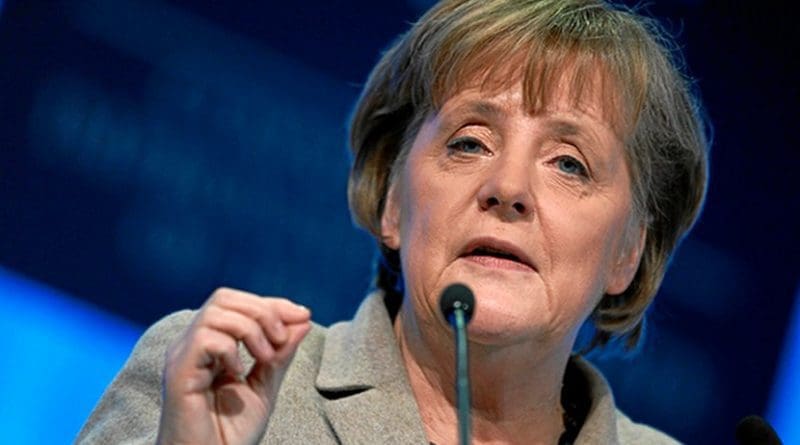Merkel Reassures North Macedonia On EU Talks
The German Bundestag will approve a start to North Macedonia’s accession talks in September, Chancellor Angela Merkel has told North Macedonian Prime Minister Zoran Zaev, authorities in Skopje said.
After a 40-minute meeting with German Chancellor Angela Merkel on Thursday, North Macedonia voiced optimism about getting a start date set for EU accession talks, saying that Merkel had informed Prime Minister Zorav Zaev that the Bundestag would adopt a decision supporting a start date for talks in September.
“The Chancellor underlined that North Macedonia has delivered on its expectations and that Berlin has a very positive outlook,” the North Macedonia government said following the meeting.
Zaev, head of a Social Democrat-led coalition government, has said his country “has full faith in Chancellor Merkel and supports its policy on the EU enlargement process, as well as her policy towards the Western Balkans”.
“There is a strong conviction that we are starting EU accession talks this year,” the government in Skopje said.
The short press statement from the German government made no firm commitments, however. It noted only that the two sides had focused on bilateral relations, as well as on “foreign and European policy issues”, reiterating Berlin’s praise for last year’s historic agreement between Athens and Skopje on the latter’s name.
Zaev’s visit to Berlin comes after the Bundestag last week failed to take any decision on supporting a start date for accession talks with either North Macedonia or Albania, dealing blow to both countries’ aspirations.
This means that a debate on when to open accession talks with the two countries cannot be on the agenda of the European Council later this month. The issue will now have to be postponed to autumn at the earliest.
Zaev has invested much of his political capital in his past two years in power on solving the long-standing dispute with Greece, overseeing changing the country’s name to North Macedonia.
The Greek deal appeared to unlock the country’s long stalled Euro-Atlantic perspectives. For now, however, progress remains disappointingly slow.
Before the meeting with Merkel, Zaev recalled that North Macedonia has been an EU candidate country for 15 years and repeated that without a start date for EU accession talks this year, his pro-European government risks losing support to its nationalist rivals.
Nenad Markovic, a political analyst and university professor in Skopje, told BIRN that without an EU talks date this year, “pro-European forces will be left ‘robbed of arguments’ in their defence of the EU path”, which could lead to a significant rise in euro-skepticism and populism.
German hesitation is not the only worry for the governments in Skopje and Tirana as they bid to secure a date for talks. France and The Netherlands both remain skeptical towards EU enlargement in general.
On Wednesday night, the Dutch parliament adopted a resolution that practically blocks the start of Albania’s EU accession talks this year, citing a lack of progress in the fight against organized crime and corruption.
Concerning North Macedonia, MPs in the Netherlands left the door further open, as the resolution did not refer to it.
The government in Skopje has insisted that the two neighbouring countries should not be put in the same basket when it comes to measuring their achievements and merits.

